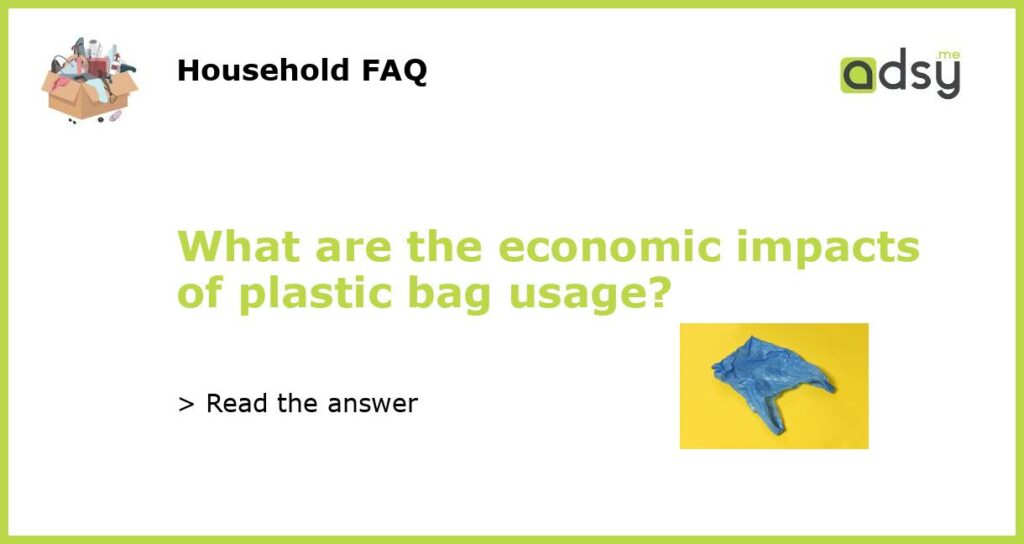The Economic Impacts of Plastic Bag Usage
Plastic bags have become a common sight in our daily lives, but their usage comes with significant economic impacts. From production to disposal, plastic bags have far-reaching consequences that affect businesses, consumers, and the overall economy. In this article, we will explore the economic impacts of plastic bag usage and highlight the importance of transitioning towards more sustainable alternatives.
The Cost of Plastic Bag Production
Plastic bags are made from non-renewable resources such as oil and natural gas. The extraction and processing of these resources involve significant costs, which are ultimately passed on to manufacturers and consumers. The production of plastic bags also requires energy-intensive processes, contributing to greenhouse gas emissions and exacerbating the issue of climate change. Moreover, the disposal of plastic bag manufacturing waste adds to the environmental burden and further drives up costs.
In some cases, the economic impacts of plastic bag production can be mitigated by recycling programs. However, the recycling rate for plastic bags remains low, with only a fraction of bags being properly recycled. This means that a majority of plastic bags end up in landfills or as litter, creating additional costs for waste management and affecting the overall cleanliness and aesthetics of communities.
Impact on Retailers and Businesses
Retailers and businesses are directly influenced by the economic impacts of plastic bag usage. While plastic bags may seem like a convenient and inexpensive packaging option, their long-term costs can outweigh the immediate benefits. For smaller businesses, the cost of purchasing and providing plastic bags to customers can accumulate over time, affecting their bottom line. Additionally, the negative environmental perception associated with plastic bags can drive away eco-conscious consumers who prioritize sustainability.
Many jurisdictions have implemented plastic bag fees or outright bans to reduce their usage. For retailers, this may seem like an additional burden, but it can actually lead to cost savings in the long run. By encouraging customers to bring their own reusable bags, businesses can reduce their expenditure on plastic bags and demonstrate their commitment to sustainability, appealing to a wider customer base.
The Effects on Consumer Behavior
Consumer behavior is strongly influenced by the economic costs and benefits associated with plastic bag usage. As plastic bag fees or bans become more prevalent, consumers are more likely to embrace reusable alternatives. This shift towards sustainable options can have positive economic impacts, such as the growth of the reusable bag market.
The popularity of reusable bags has led to an increase in their production, creating jobs in manufacturing and retail sectors. This not only stimulates the economy but also promotes sustainable practices. Additionally, the use of reusable bags can save consumers money in the long run, as they no longer need to purchase disposable bags for each shopping trip.
The Overall Economic Impact
The economic impacts of plastic bag usage extend beyond manufacturing and retail sectors. Plastic pollution caused by discarded bags affects industries such as tourism, fisheries, and agriculture. For example, plastic bags can contaminate bodies of water, posing a threat to marine life and impacting the fishing industry.
Plastic bag litter can also decrease property values and deter tourists from visiting certain areas. The costs associated with cleaning up littered plastic bags and restoring affected ecosystems can be significant, diverting resources that could be used for other economic purposes.
In conclusion, plastic bag usage has far-reaching economic impacts that affect various sectors of the economy. From the cost of production to the consequences of pollution, plastic bags have significant financial implications for businesses, consumers, and communities. Transitioning towards more sustainable alternatives not only reduces these economic burdens but also promotes a healthier and more sustainable future.






